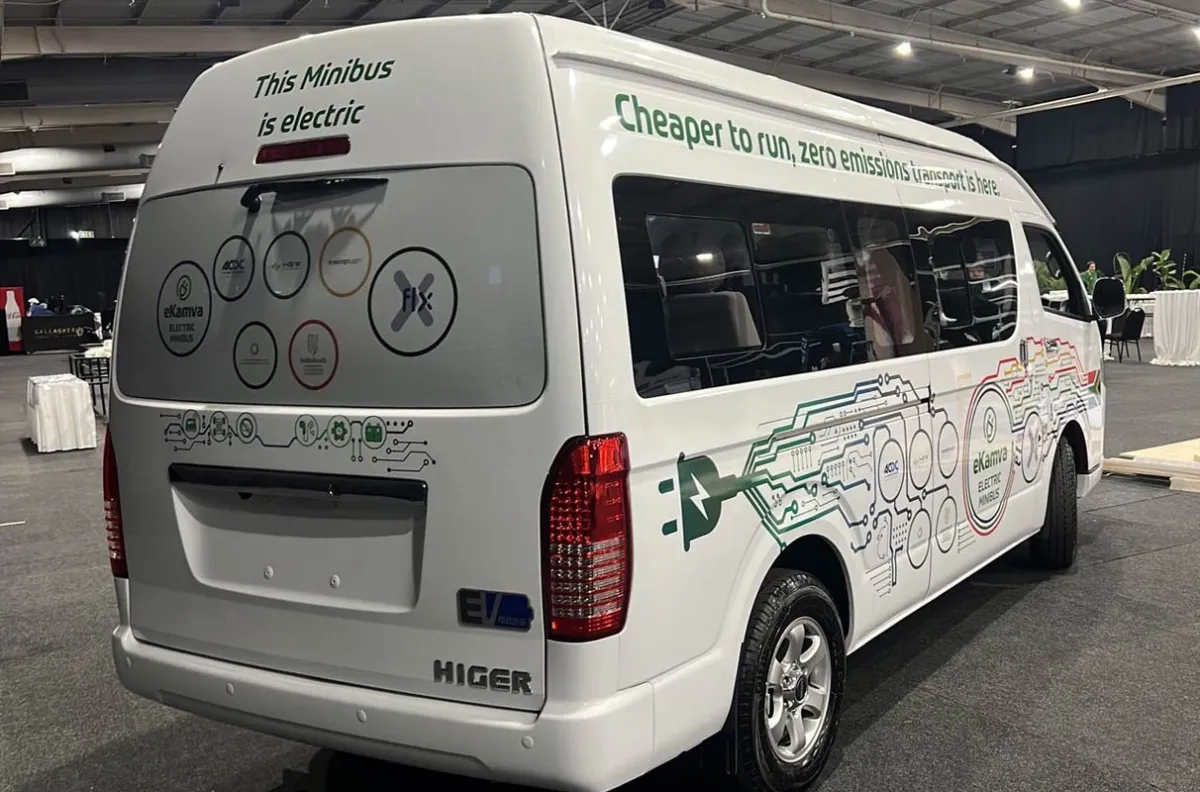
‘What’s the fare!?’ Mzansi criticizes electric minibus taxis in South Africa
The first electric minibus taxi in South Africa offers the promise of quieter, zero-emission public transportation; however, users are primarily concerned with lower fares.

Introducing South Africa’s first electric minibus taxi, the eKamva, which translates to ‘into the future’ in isiXhosa, set to transform public transportation. However, due to the lack of government incentives for electric minibus taxis in the country, this Higer-branded vehicle is imported from China.
Never mind the fact this is a massive own goal for our automotive manufacturing industry. President Ramaphosa recently courted Tesla’s Elon Musk for local investment in New York. He painted South Africa as being some sort of future hotbed for EV production. And yet, the reality couldn’t be further from the truth.
ELECTRIC MINIBUS TAXI IN SOUTH AFRICA
Moreover, according to the Department of Transport, 3.9-million South Africans use public transport like minibus taxis. This equates to 63% of the economically active population. And yet, we’re only seeing the first electric minibus taxi in South Africa now. Imagine the economic and environmental benefit to zero-emissions public transport produced locally?
Nevertheless, the eKamva is the brainchild of a group called GoMetro, reports Business Tech. And it will be accompanied by an integrated EV business model and charging infrastructure called Flex EV. The eKamva accommodates 15 passengers and had a range of 200 km per charge. Fast recharges take 75 minutes through a 60-kW direct current (DC). And an alternating current (AC) charge takes 10 hours overnight. Theoretically, taxi operators will need to own several to make up for downtime.
HOW MUCH WILL THE FARE BE REDUCED?
Nevertheless, GoMetro says the electric minibus taxi in South Africa represents between a 40-70% saving over traditional minibuses. There is no fuel cost and maintenance should be hugely reduced due to the lack of moving parts. Furthermore, prototypes are is currently undergoing homologation tests by the national regulator.
Moreover, various entities have been doing their own rigorous testing on taxi routes in Stellenbosch. The first charging hubs will be in Century City and Stellenbosch. GoMetro says the taxi industry consumes two-billion litres of fuel every year. And contributes 30-million tonnes of carbon dioxide to the atmosphere. So, the question remains: How much cheaper will the fare be? Only time will tell …
